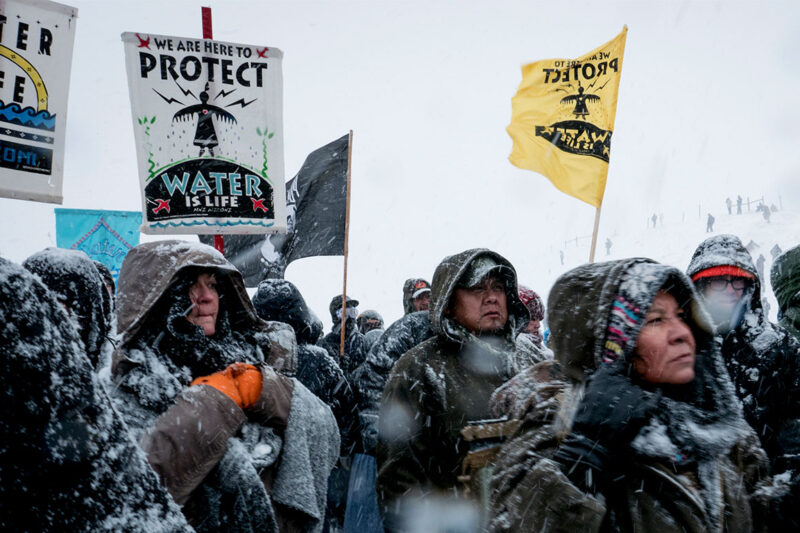It’s Time for Members of Congress to Show Up and Stand Up for Standing Rock


Tomorrow, members of Congress will have an opportunity to show up and stand up for Standing Rock.
Wednesday’s Energy and Commerce subcommittee hearing sounds like a snoozefest — “Modernizing Energy and Electricity Delivery Systems: Challenges and Opportunities to Promote Infrastructure Improvement and Expansion ” — but witnesses for this hearing include Chad Harrison, the councilman at large for the Standing Rock Sioux Tribe, and Joey Mahmoud, the project director for the Dakota Access Pipeline.
Have no doubt: The injustices taking place at Standing Rock this very minute will certainly be on the agenda.
Last week, the U.S. Army indicated it will grant the final permit to complete construction of the Dakota Access pipeline. This decision comes in response to a January 24 presidential memorandum encouraging the Army Corps of Engineers to override environmental review and speed up pipeline construction. The company building the pipeline, Energy Transfer Partners, hasn’t wasted any time. Drilling resumed last week while a federal judge in Washington, D.C., yesterday denied the Standing Rock Sioux Tribe’s request for a temporary injunction to halt the company’s construction of the pipeline.
So it is safe to assume that the lack of meaningful tribal consultation, short-circuiting of legally required environmental review, and failure to provide proper notice to Congress around Standing Rock are fair game for Wednesday's hearing. But members of Congress should also address the federal government’s failure to protect the constitutional and human rights of Native American water protectors and others assembled at Standing Rock in opposition to the Dakota Access Pipeline.
Last Friday, the ACLU renewed its ask that the Department of Justice investigate law enforcement’s use of force and militarized response against Standing Rock protestors. We know law enforcement have used armored vehicles, automatic rifles, sound cannons, water cannons, and other offensive military weapons and equipment in possible violation of the Constitution and federal laws. We also asked DOJ to send federal observers to Standing Rock, echoing a request from members of Congress to protect protesters from civil rights and civil liberties abuses.
Last Friday, we learned that the federal government has intervened, but not as we have asked. Agents from the Federal Bureau of Investigation Joint Terrorism Task Force are investigating water protectors and other activists at Standing Rock. The FBI began contacting organizers in the weeks that followed the inauguration.
Unfortunately, this is disturbing, but not surprising. We know the FBI has surveilled the Black Lives Matter movement, too.
There is a lot to talk about on Wednesday. To ensure there’s a robust discussion, here are three questions that members of Congress should ask themselves and witnesses:
- Will you stand up and defend the tribal sovereignty of the Standing Rock Sioux including the protection of sacred burial sites and access to safe and clean water?
- Will you stand up and demand that DOJ investigate possible civil rights violations at Standing Rock?
- Will you stand up and call for an end to the FBI’s unwarranted surveillance of an indigenous-led non-violent movement?
When it comes to Standing Rock, the world is watching. Tomorrow is the time for members of Congress to let their constituents know on the record whose side they’re on.



